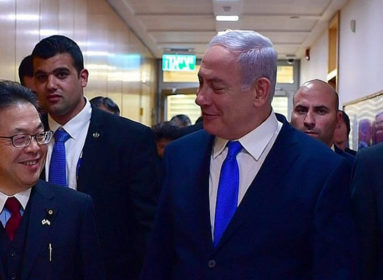
By Cindy Mindell
NEW LONDON – During his years living in the U.S., Elie Wiesel was honored by numerous institutions and organizations and served as faculty-member and guest lecturer at countless universities.
The first endowed professorship in his name was established in 1990 at Connecticut College, thanks to a $1.4 million gift from alumna JoAnn Hess Morrison ’67 and a donation from Sigmund Strochlitz z”l, a Holocaust survivor and philanthropist living in New London. At an event inaugurating the Elie Wiesel Professorship in Judaic Studies, Wiesel spoke about “The Urgency of Learning,” telling the audience, “No adventure can be as inspiring as that which occurs between a teacher and his student.” Roger Brooks, former dean of the Connecticut College faculty, held the chair from its inception until 2014. He is currently the president and CEO of Facing History and Ourselves, a global organization based in Brookline, Mass. that provides educational materials and programming on antisemitism, racism, and prejudice.
Sharon Portnoff, associate professor of Religious Studies, succeeded Brooks earlier this year. A scholar specializing in modern Jewish thought and Holocaust theology, Portnoff teaches courses in the Holocaust, Israel, post-Holocaust responses, religious ethics, and Jewish traditions. She joined the Connecticut College faculty in 2008.
Portnoff studied Hasidism with Wiesel when she was a student at Boston University in the early 1990s. “One felt his presence in the classroom: he knew how to make our moments all moments,” she recalls. “He told stories about the lives of the Hasidic rebbes and his relationship to Hasidism, and these stories touched us deeply. They spoke directly to our sense of humanity and inspired in us a desire to act on the responsibilities that entails.”
As a result of her experience in Wiesel’s classroom, Portnoff has incorporated storytelling into her teaching, especially when she addresses the Holocaust — “to communicate to students not only knowledge of the event, but, as Prof. Wiesel taught, the importance of witnessing, which describes itself in enacted values,” she says.
Wiesel would return to Connecticut College several times. In November 1993, he delivered “Memory and Hatred: The Challenge of Identity,” the keynote speech at “Jew Hatred: A Paradigm for Racism?,” a three-day international conference scheduled to coincide with the 55th anniversary of Kristallnacht.
“We have lost a moral conscience,” Portnoff says of Wiesel’s death. “The world rests on 36 just people, and we have lost one of them. But he has left us with his books and the hope that they inspire: there is another [just person].”
CAP: Sharon Portnoff







 Southern New England Jewish Ledger
Southern New England Jewish Ledger














